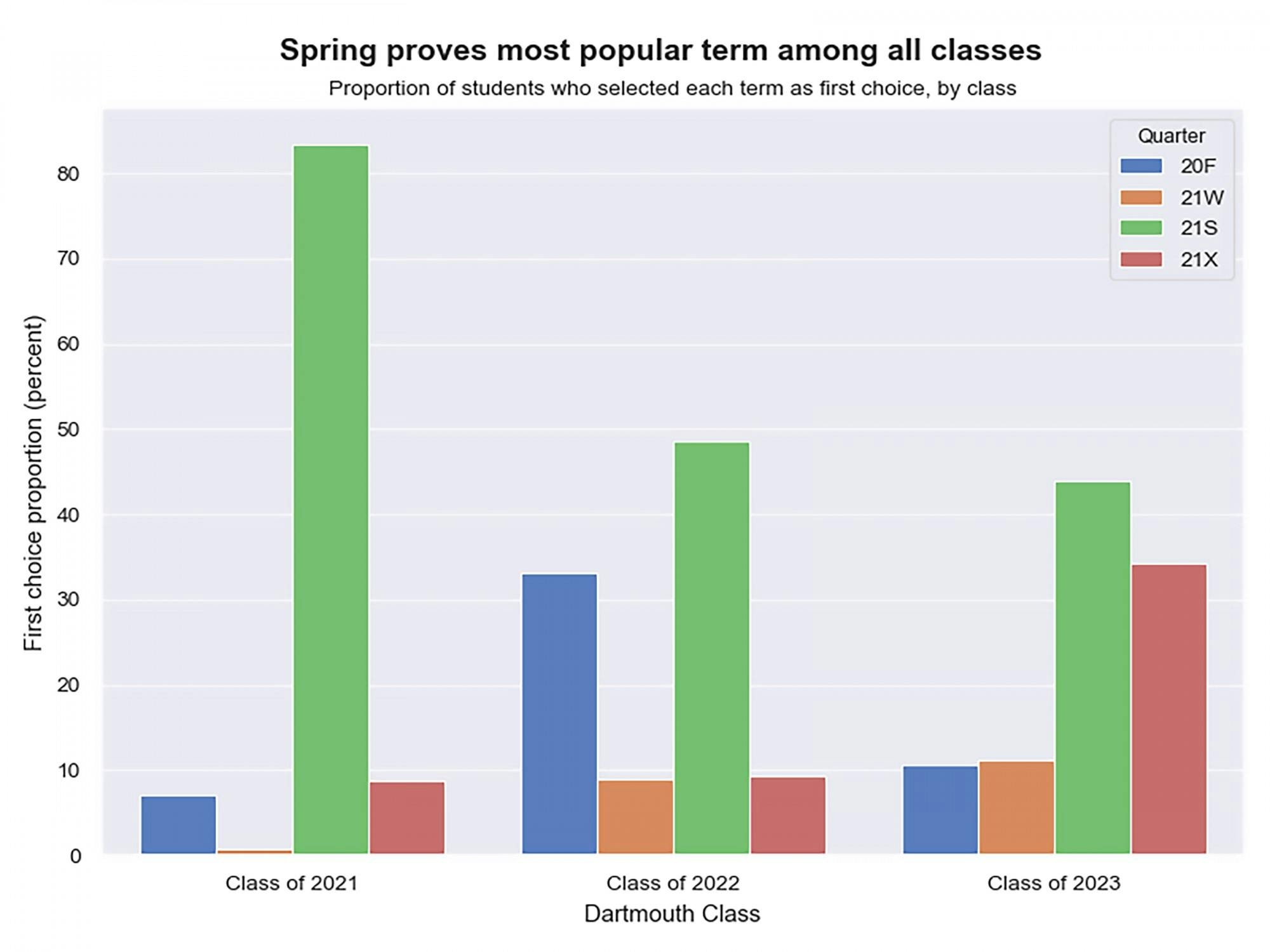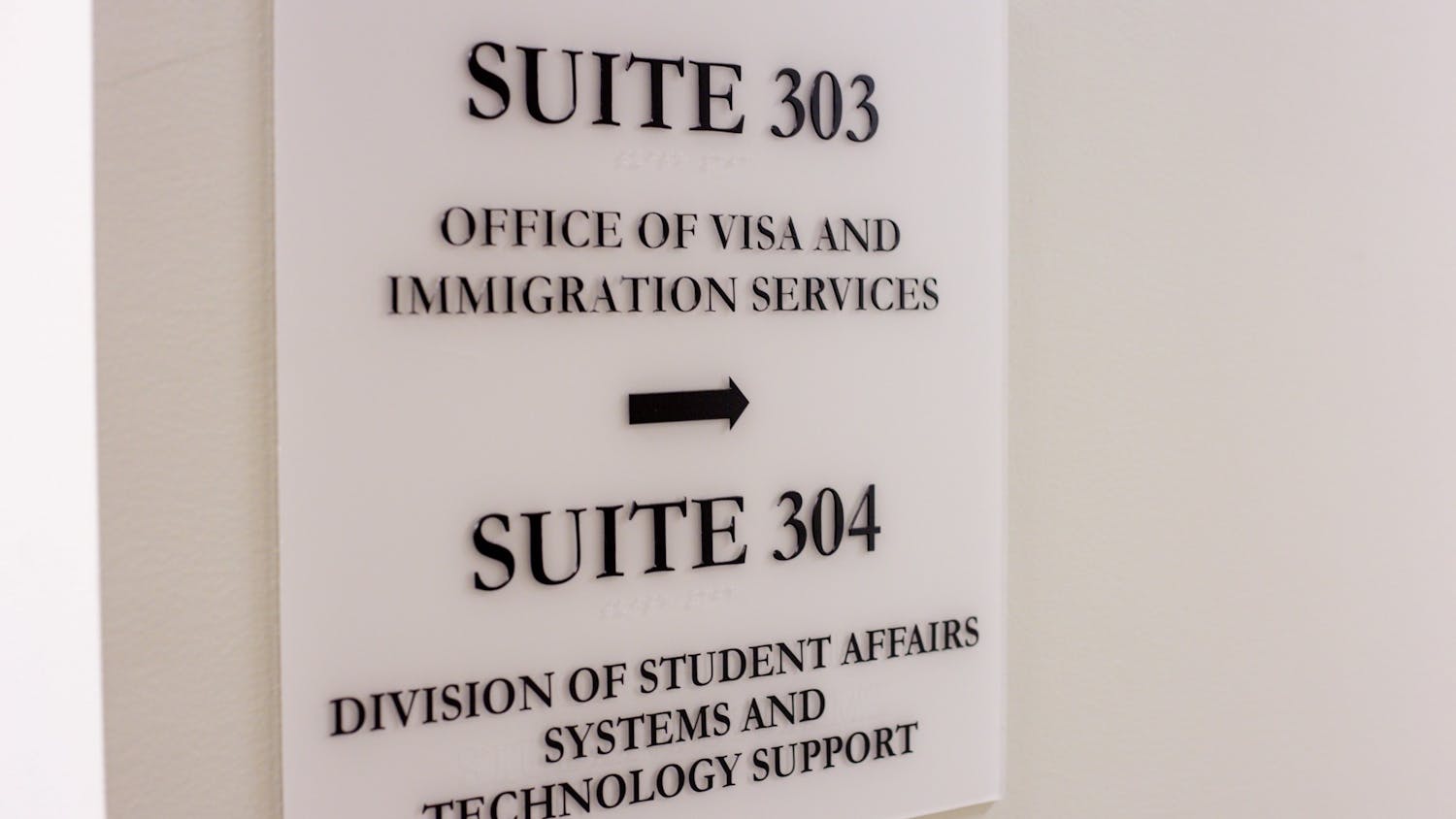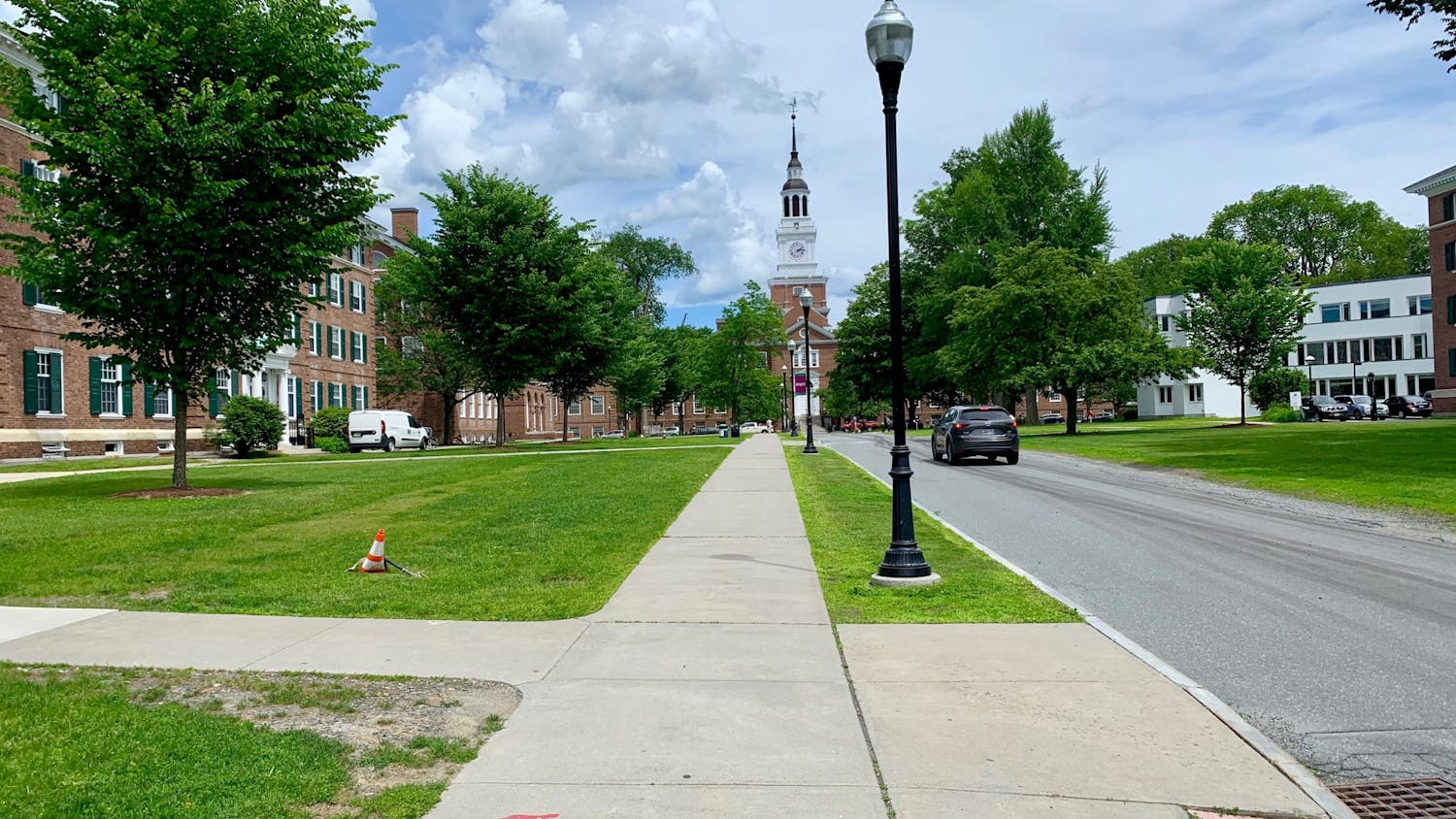Since the College released its plans for the upcoming 2020-2021 academic year, Dartmouth students have been faced with difficult decisions over what they want their upcoming year to look like. Recently, The Dartmouth surveyed the student body on its opinions and reactions regarding the College’s plans for the upcoming academic year. The following article presents the findings.
In general, students are not satisfied with the College’s current plan for the academic year, with 80 percent expressing strong or moderate disapproval of the current plan. In terms of which class will experience the greatest disruption to their Dartmouth experience from the remote nature of the academic year, students believed the Class of 2023 would suffer the most at almost 50 percent, followed by the Class of 2022 at 21 percent and the Classes of 2021 and 2024 at around 15 percent each. In regard to the various aspects of the upcoming academic year, students rate the quality of remote learning, seeing friends and classmates in person and the opportunity to take in-person classes as the factors that are most important to them. Students also valued campus protective measures such as masks and social distancing, as well as participation in student organizations like athletics and Greek life. Students placed less emphasis on housing and meal arrangements and travel and visitors.
In its plan for the academic year, the College has designated a priority term for every class; the priority terms are spring for the Class of 2021, fall for the Class of 2022 and summer for the Class of 2023. Overall, 74 percent of students indicated that they were very or somewhat likely to return to campus for their designated priority term. Most rising seniors plan to return for their senior spring with 80 percent indicating that they are likely to be on campus. Most rising sophomores plan to return for their sophomore summer with over two-thirds indicating that they are likely to be on campus. Rising juniors are least likely to be on campus for their designated priority term with 56 percent indicating that they will likely be on campus this coming fall.
In addition to the priority term, the College has also promised a second on-campus term for every student. In The Dartmouth’s survey, students were asked to rank the favorability of the four on-campus terms. Spring was overwhelmingly the most popular choice with 84 percent of students ranking it as their first or second preference. The second most popular choice was fall with 45 percent ranking it as their first or second preference, followed by summer with 34 percent. Winter was the least popular choice with only 8 percent ranking it as their first preference and 30 percent ranking it as their second.
The favorability of the various terms differs across class years. Fall term is most popular among rising juniors with 59 percent ranking it as their first or second choice. Winter term was generally unpopular across all class years in contrast to Spring term which was popular across the board. While the College has allowed rising juniors to defer their sophomore summer to next summer, it appears that many opted not to do so with only 23 percent of rising juniors planning to join rising sophomores on campus next summer.
Many students have also expressed interest in returning to the Hanover area in off-campus housing, with 56 percent indicating that they are likely to consider this option. Rising seniors are more likely to consider off-campus housing than juniors and sophomores, with 69 percent indicating that they are likely to look into off-campus options, compared to 50 percent of rising juniors and 52 percent of rising sophomores.
Methodology Notes:
From Friday, July 10 to Friday, July 17, The Dartmouth fielded an online survey of the Dartmouth student body on their view of the College’s reopening plan. The survey was sent out to 4,461 undergraduates through their school email addresses. 513 responses were recorded, resulting in a 11.5 percent response rate. Using administrative data from the College’s Office of Institutional Research, responses were weighted by gender, class year, and race/ethnicity. Weighting was done through iterative post-stratification (raking). Survey results have a margin of error +/- 4.07 percentage points.




